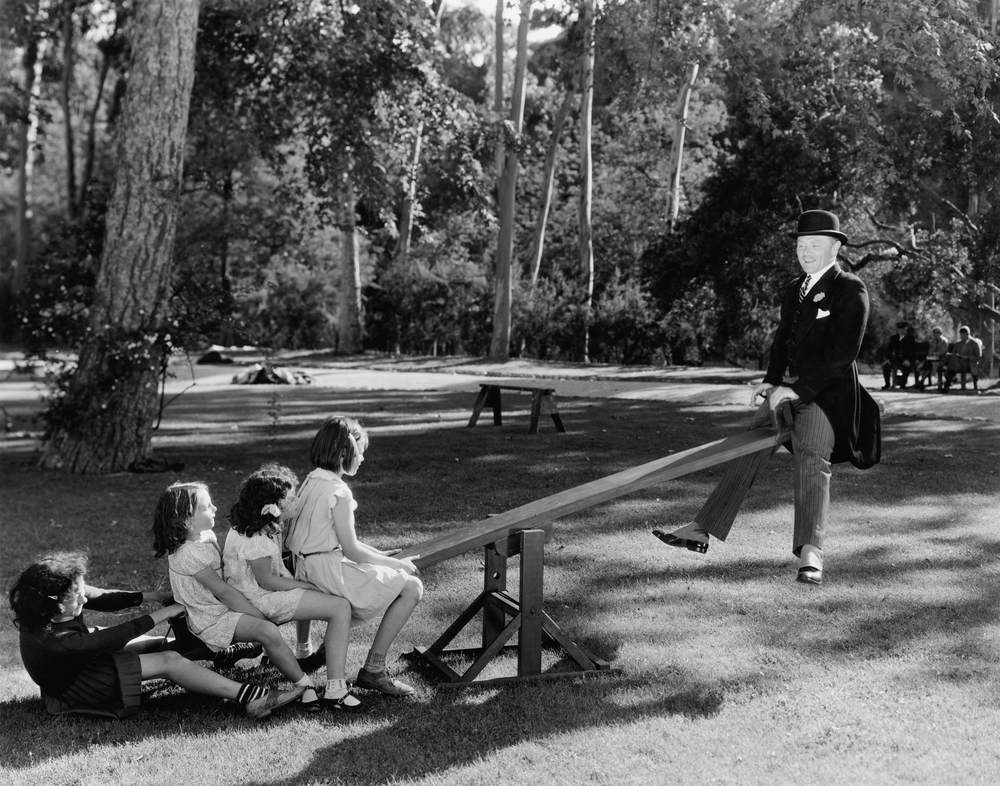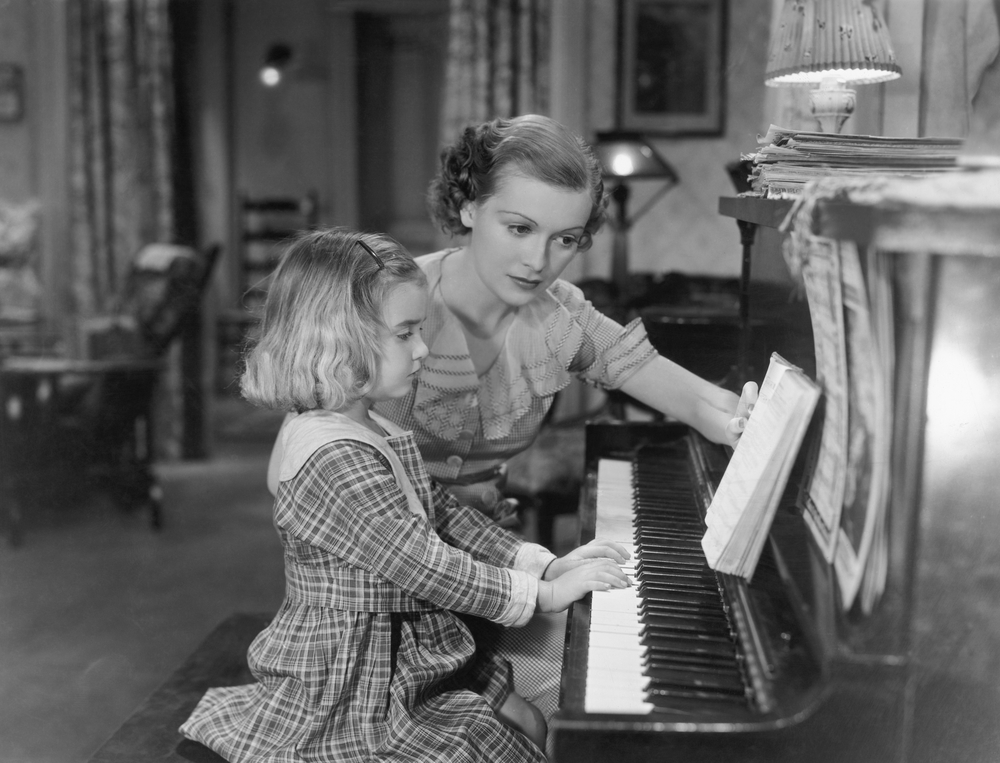California Homeschooling Homeowners Association Lawyer

California Homeschooling Homeowners Association Lawyer Sebastian Gibson
Homeschooling Law in California
It is the opinion of California Homeschooling Homeowners Association Lawyer Sebastian Gibson that this is the most important case for homeschooling in California. Indeed since the 2008 case of In Re Jonathan L. Et al., Petitioners v. The Superior Court of Los Angeles County, Cal. Ct. App., 2nd Dist., Div. 3 (2008), which provided a victory for homeschooling advocates in California, little has changed in the state. Said the court in that case, “we must consider whether home schooling is permitted under California statutes. We conclude that it is.”
In that case, Judge H. Walter Croskey, of the Second District Court of Appeal in Los Angeles wrote that so long as parents declare their home to be a private school, they can continue to homeschool their children, even without credentials. Said the court, “California statutes permit homeschooling as a species of private school education.”
Judge Croskey went on to state that while California impliedly allows parents to homeschool, California currently had no enforcement mechanism. He said, given the State’s compelling interest in educating its children, and the absence of an express regulatory framework for homeschooling in California, additional clarity would be helpful.
As of 2008, the court found “As long as the local school district verifies that a private school affidavit has been filed, there is no provision for further oversight of a home school.” That appears to still be the law in California despite the fact Judge Croskey’s opinion was considered to be an invitation to legislators to create statutes and regulations as well as a mechanism to enforce the rules they set for homeschooling.
There continue to be very limited requirements to privately school legally in California. Now with the fear of parents that their children might catch Covid-19 in school, homeschooling has never been more important as an option for parents with the lack of affordable child care.
California Homeschooling Homeowners Association Lawyer Sebastian Gibson, the Choice of Homeowners
Specializing both in homeschooling law and homeowner association law in California, California Homeschooling Homeowners Association Lawyer Sebastian Gibson has been named a top lawyer for the past 10 years in a row by the prestigious Palm Springs Life Magazine and rated “Superb” (their highest rating) by Avvo which rates attorneys all across the nation.
With law degrees both in California and Great Britain and over 40 years of experience both in California and in London, California Homeschooling Homeowners Association Lawyer Sebastian Gibson has been called “Brilliant” and “A Legend.”
Today with offices both in Palm Desert and in Newport Beach, California Homeschooling Homeowners Association Lawyer Sebastian Gibson specializes in going after homeowner associations which seek to unfairly intrude into the lives of homeowners including the elderly, those who would prevent diversity within the development by refusing to allow a homeowner to lease or rent their home, or to homeschool their children and others.
If you’ve been unfairly discriminated against for homeschooling or any other basis and are constantly receiving violations and being fined for reasons not allowed by your HOA’s bylaws, CC&Rs, Rules and Regulations or by California law, call California Homeschooling Homeowners Association Lawyer Sebastian Gibson.
California Education Code Sections Applicable to Homeschooling
Education Code Section 48010 requires that a child be six years old on or before September 1st for their first grade school year.
Under California law, a private school is official the minute a person states it is according to the HomeSchool Association of California. The California Department of Education has told the HomeSchool Association of California that they believe private schools are allowed to be formed after October 15th of a year. A child is thus enrolled and legally exempt from public school attendance as soon as a person has started their own private school. The Public School Affidavit is simply a statement about one’s school on the day that a person files. The California Department of Education has further advised the HomeSchool Association of California that the purpose of the affidavit is to allow them to compile a private school directory.
However, since there is a specific filing period of October 1st and October 15th, a parent wishing to homeschool their child should again file a Private School Affidavit for the coming school year and each year thereafter while they homeschools their child privately between October 1st and October 15th if possible. The fact that the online filing is allowed after October 15th is apparently because such filings are still allowed if after the period of October 1st to October 15th.
The state of California does not approve, evaluate, recognize, endorse or supervise a private school. The affidavit is simply a device that enables the Department of Education to keep track of the number of school children in California and private schools.
Education Code Section 33190 requires that an affidavit be filed stating information for the current school year. The Superintendent of Public Instruction should be able to verify if they received this affidavit and if it contained all of the required information.
Home educators are thus allowed to establish a private school, based in their home, by filing this private school affidavit with the Superintendent of Public Instruction in California (normally between October 1st and October 15th ) every school year, but as discussed, it appears it can be filed after that period.
Basically, the remainder of the applicable Education Code Sections with regard to these private schools simply require that the instructors be capable of teaching (as determined by the private school administrator, the parent), the instruction must be in English, the instructions must be in certain branches of study (those required in public schools), certain pupil and school
records must be on file, and certain Health Department forms must be on file. Among those records are records of immunization a copy of the filed affidavit, attendance records, a record of the educational qualifications of the faculty, the courses of study offered, and a criminal record summary.
Education Code Section 48200 requires children between the ages of 6 and 18 to be subject to full-time education.
Education Code Section 48222 exempts homeschooled children in a private school from the requirements of attendance at a public full-time day school.
Education Code Section 48222 requires teaching in English, and requires attendance to be kept. Teachers at private schools do not need to hold state teaching credentials. California Education Code Section 48222 simply requires that the teachers be “capable of teaching.” The California Attorney General has interpreted this to mean that teachers in private schools should meet standards comparable to those required for public school teachers in similar positions, excepting only the credentials (3 Ops. Cal. Atty. Gen. 193).
Education Code Section 48224 states that children not attending a private school but who are being taught by a private tutor are also exempted from attending public schools if the tutor has a valid state credential for the grade taught.
Education Code Section 48415 requires verification by the Attendance Supervisor of the District to verify that the affidavit required under Section 33190 has been filed.
Education Code Section 51210 requires certain subjects to be taught in grades 1 through 6.
The California legislature has thus quite silent with regard to the establishment and operation of private schools thus viewing it as a mostly private matter.
California thus does not have a homeschool law per se. California statutory law is silent with regard to defining home education, a home educator, homeschool, homeschooling or a
homeschooler. The closest thing one can say exists with regard to California homeschool law is the 2008 discussed above which clearly states homeschooling is permitted as a species of private school education.
As mentioned above, teachers at private schools do not need to hold state teaching credentials. California Education Code Section 48222 simply requires that the teachers be “capable of teaching.”
Homeowner Associations in California
Despite the view of the California Legislature that homeschooling is a private matter, some California homeowner associations have attempted to interfere in this practice under the guise of claiming it constitutes a business. An HOA may claim that the entity or parent operating a homeschool is required to obtain a license with the State of California or a city or county and/or a business license as well, and as a business, the operation of a homeschool the HOA may feel that it can be disallowed by the HOA CC&Rs.
So lets look at the possible types of homeschool entities that can exist and in which cases a license and/or a business license as well may be required by the State of California or a city or county.
HOA Claims that Homeschooling Requires a California Child Care License and Constitutes A Business
The Child Care Licensing Program licenses both Child Care Centers and Family Child Care Homes, however, the activities of homeschooling are quite different from child care.
Child Care Centers in California
A child care center is usually located in a commercial building. Non-medical care and supervision is provided for infant to school age. For these reasons, and the fact that they are not for homeschooling, this category does not apply to homeschooling.
California Family Child Care Homes
Small Family Child Care Homes provide care to no more than 8 children. Large Family Child Care Homes provide care to no more than 14 children. Again, however, these Child Care Homes are not for homeschooling.
If a family had was homeschooling 14 children or fewer and some of those children were just there for day care, and not homeschooling, particularly children not yet of school age, then conceivably, the parent would need a license. The annual fee is currently $140.00. But initially there are other fees of another $25, $50, another $140, and there can be other fees as well.
There are also page after page of code section requirements that would make this much more difficult for a person to operate, even if the HOA allowed a person to have a business. California even regulates what percentage of fat in milk you can give to children two years of age or older (it’s low fat 1 percent). Currently, there is a shortage of child care centers in California.
License-Exempt Child Care in California
There are four groups of child care providers exempt by the state of California from obtaining a child care license. The first is for individuals who care for the children of a relative or of one other family in addition to their own children. The second is for public or non-profit programs that offer recreational services. The third is for businesses that offer limited child care to their clients and customers. The fourth is for those overseen by state agencies other than Community Care Licensing, for example organized camps.
Providing child care as operating without a license is a misdemeanor and subject to a $200 per day fine. Family child care homes must also sometimes get approval in their location from their local Fire Department.
California Homeschooling Co-Ops
Homeschooling groups are commonly non-profit and parent-led learning social cooperatives. However, co-ops appear to require the parents to be on the premises and all parents to assume a co-op role.
Private Schools in California
When a parent sets up a small school for homeschoolers either as a for-profit or non-profit, however, they are generally considered to be setting up a “private school.” They are then not technically “homeschooling” the children other than their own, but having them as students in their private school and if that description applies, a parent must follow the rules set forth in California for private schools.
California Private School Rules and Regulations
First, the parent needs to file the online affidavit for a private school. However, there are a host of other problems in going this route.
Schooling must begin between the first and 15th day of October of each year.
A business license is required, which may then conflict with their HOA CC&Rs or a provision in the HOA CC&Rs that there may not be any businesses conducted at a residence within the community development. While the State might not require a license to operate a private school to homeschool other children besides those of a parent, a business license in one’s city is likely to still be required.
Each person between the ages of 6 and 18 not exempted is subject to compulsory full-time education. However, children who are being instructed in a private full-time day school by persons capable of teaching are exempted.
There are a host of other regulations and California Education Code sections that apply to private schools which would require a much more lengthy discussion. However, since the subject of this article is whether a Homeowners Association would be able to disallow the private school from operating based on the fact that a business license would be required, that will depend on how the HOA’s CC&Rs and their Rules and Regulations are written.
A Parent’s Own Private School Affidavit Just For Their Own Children in California
The Private School Affidavit in fact does not license, evaluate, recognize, approve of, or endorse a private school. Its just a statistical tool and necessary to effect a parent’s child’s exemption from compulsory public school enrollment and attendance. It does not exempt any other children a parent is homeschooling.
California Private School Satellite Programs
These do not appear to be much different in nature than “private schools.” I therefore believe a business license would thus be required for this type of entity.
California Tutoring Businesses
Anyone operating a tutoring business of other children would obviously need a business license for this. Consequently, an HOA which prohibits business operations within their community development would be able to disallow a tutoring operation within their development. Other licenses might also be required for a tutoring business as well.
Non-Profit Corporations in California
While a homeschooling entity formed as a non-profit corporation might afford the entity some additional tax breaks, since most homeschooling operations do not make any money in the first place, forming a non-profit could in fact be detrimental when one considers the rules which govern these entities and the costs to set it up and maintain it legally.
Private Organizations
A Private School Affidavit should not be filed if a private organization 1) provides only supplemental of tutorial instruction to students enrolled in other full-time schools; 2) provides instruction only in a single subject area, such as foreign language or driver education training; 3)provides instruction only to students younger than four years, nine months; 4)does not yet have students enrolled; and/or 5)offers a high school diploma but does not provide instruction in the several branches of study outlined in EC (Education Code) 51220.
Private Associations
In the California Department of Education materials online, the CDE refers to these simply as providing networking support for schooling at home. Private Associations are thus different from the term, “Private Organizations.”
Local Homeschool Groups or Meet-Ups
One page of the California Department of Education (CDE) states that the CDE does not provide guidance on how to home school and it mentions that there are “local homeschool groups or meet-ups,” and just refers parents to look for resources online to assist them. Such loosely organized groups would unlikely require a business license unless they fall within one of the other categories mentioned herein which require licenses.
Religious Homeschooling in California
The California Department of Education (CDE) has no statutory authority to regulate or monitor private schools or private education, except to the extent they request nonpublic nonsectarian (not involving or relating to a specific religious sect or political group) school certification. For that reason, it’s possible why so many homeschooling groups are religious in nature.
Private Fee-Based Internet Programs
There are also private, fee-based internet-based programs located in California, and these programs also operate with little oversight. Transferability of course credits to California public schools and colleges vary widely though.

An Analysis of Homeschooling in General in California By California Homeschooling Homeowners Association Lawyer Sebastian Gibson
The California Department of Education states on their information online that California statutes do not explicitly authorize home schooling. Whether a child is exempt from public school attendance, is a decision made by local school districts and law enforcement authorities. Even filing the private school affidavit does not constitute any opinion by the CDE as to whether a student enrolled in that school is exempt from public school attendance.
For families schooling at home, filing the Affidavit is a required first step toward an exemption from compulsory school attendance. Then the school district listed in the Affidavit makes a determination of whether a home-schooled child has met the statutory requirements and therefore is exempt from public school attendance.
There are no written state or local school district curriculum requirements or guidelines for homeschooling because California’s grade level standards and adopted materials do not apply to students schooled at home under the Affidavit.
Why Parents Homeschool
Homeschooling has become an important alternative available to parents concerned with the quality of education their child receives, fears that their child may be bullied, be exposed to drug use or even involved in a school shooting. Since the appearance of Covid-19, and the lack of affordable child care, homeschooling has taken on new importance.
For those parents who wish to ensure that their child still has social interaction with other students, homeschooling groups with more than simply a parent’s children provide another alternative to public schools or private homeschooling in a parent’s home.
Legal Options for Parents Receiving Violations From Homeowner Association Boards And Their Property Managers
Homeowner associations which are all too often dictatorial or intrusive into the affairs of parents and homeowners must be encouraged to understand the importance of homeschooling to parents only seeking to provide the best possible schooling for their child or children.
When a parent who is homeschooling receives a violation from their HOA or the HOA Board’s Property Management Entity and educating the HOA Board members falls on deaf ears, the parent should request a hearing before the HOA Board.
If a resolution isn’t made to allow the parent’s homeschooling, alternative dispute resolution such as a mediation can then be requested. If the HOA Board still won’t allow a parent to homeschool their children and others, litigation may be the only answer.

Choosing California Homeschooling Homeowners Association Lawyer Sebastian Gibson
There comes a time when a homeowner has no choice but to fight their homeowner association that becomes dictatorial or seeks to force a homeowner to move from the home they made for their family and their old age.
California homeowner association lawyer Sebastian Gibson, who also specializes in homeschooling law is the attorney to turn to when a homeowner reaches that point when a legal confrontation with their HOA board is the only answer.
With offices in Palm Desert and Newport Beach in Orange County, and serving homeowners and homeschooling parents throughout California, California HOA lawyer Sebastian Gibson is the attorney to turn to when an HOA has made life miserable for a homeowner.
Homeowner associations can be sued and in some cases, even punitive damages can be awarded and attorney fees and costs recovered as well. Don’t allow your HOA to take away your rights to the enjoyment of your property or your property rights.
In severe situations, the reserves of a homeowner association can be sought when an HOA seeks to deprive the elderly of the income they anticipated receiving from the lease of their home to pay for assisted living facility charges.
California Homeschooling Homeowners Association Lawyer Sebastian Gibson has over 45 years of experience in California and in London and has been named a Top Lawyer for the past 14 years in a row by Palm Springs Life Magazine. California Homeschooling Homeowners Association Lawyer Sebastian Gibson has also written for the Los Angeles and San Francisco Daily Journal newspapers and is also a published author.






